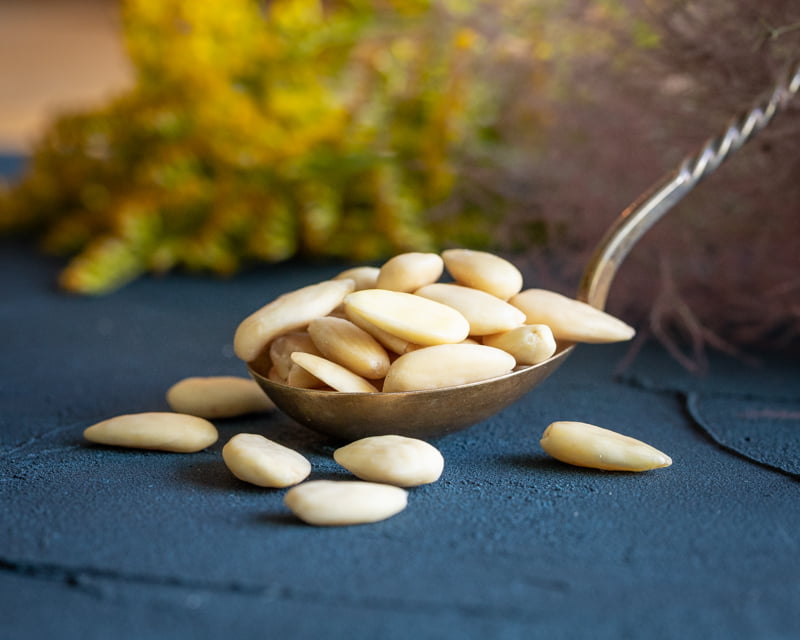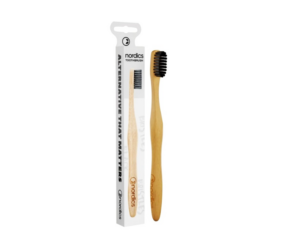Organic shelled almonds
From 2.90€
The almond (Prunus dulcis), mostly grown in the Mediterranean region, in the USA, Australia and China, but originating from the Middle East region (Iran, Saudi Arabia, etc.), where it still grows naturally. Almonds are known as the kings of nuts because they are considered to be the most beneficial nuts for the human body, due to their high content of essential nutrients. Almonds can be eaten fresh or used in cooking, and are great in baked goods and salads. It’s not only healthy, it’s also delicious.
Health benefits of almonds
Almonds are rich in vitamins, minerals, dietary fibre and plant-based protein. Eating 30 grams of almonds gives us 1/8 of the protein we need. There is more than one reason why you should start eating almonds every day:
Reduces the risk of heart attack and other heart diseases
Lowers bad cholesterol
Protects artery walls from damage
Helps maintain strong teeth and bones
Lowers blood sugar levels
Supports good brain function
Nourishes the nervous system
Helps the digestive system
Protects against constipation
Alkaline the body
Helps you lose weight (and, if necessary, gain it)
Maintains healthy skin
Helps with hair problems
Almonds lower cholesterol
Eating almonds every day can help regulate your blood cholesterol levels. This is because the polyunsaturated and monounsaturated fats in almonds, also known as good fats, increase good cholesterol (HDL) and lower bad cholesterol (LDL). Studies have shown that eating about 100 grams of almonds every day can reduce bad cholesterol by 15%.
Reduces the risk of heart disease
The main reason for this is the previously mentioned fact that almonds lower bad cholesterol. The magnesium in almonds improves blood circulation and the transport of oxygen and nutrients throughout the body. Almonds are also high in vitamin E, which protects the arteries against artery-damaging inflammation and calcification of the artery walls. Eating almonds is associated with better blood lipid levels and better heart health, which can help regulate blood pressure and prevent heart attacks.
Almonds improve brain function
Almonds are considered one of the best foods for the brain because they are low in saturated fat, rich in omega-6, vitamin E, calcium, zinc and protein. Vitamin E supports cognitive function, protects memory and promotes alertness. Zinc and vitamin E help protect the brain from the harmful effects of free radicals. Vitamin B6 in almonds helps repair damaged brain cells. Phenylalanine, an amino acid found in almonds, is thought to improve problem-solving function and may help prevent Parkinson’s disease.
Almonds regulate blood sugar levels
Almonds regulate blood sugar levels and help prevent diabetes. Thanks to nutrients such as good fats, fibre, vitamins and minerals, almonds help regulate nutrient absorption and blood glucose levels. Studies have shown that almonds can help people with type 2 diabetes, and help men and post-menopausal women to control this type of diabetes. They also prevent high sugar spikes, which can protect against diabetes.
Almonds and their benefits for the skin
Almonds contain a nutrient that is essential for skin health – vitamin E. This vitamin nourishes the skin and prevents it from drying out. You can use almond oil for skin care by simply rubbing it on your face, it doesn’t clog the pores of your skin and doesn’t leave you with an unpleasant greasy feeling. Almond oil has warming properties.
Benefits of almonds for hair
The nutrients in almonds, ranging from essential fatty acids (omega-6), vitamin E, biotin (vitamin B7) and the mineral manganese, are so beneficial for healthy hair growth. The zinc in almonds promotes cell renewal and protects against hair loss.
Use almond oil on your hair, you can massage it on your scalp, apply it to your hair, leave it on for 30min and then rinse it off with water or just leave it on overnight as a hair mask, which will allow your hair to absorb the nutrients to the maximum. Almond oil will help nourish your hair or address existing hair problems, from dandruff to hair loss. Simply apply this oil to your hair 3 times a week.
Almonds are also used to make certain products that are also good for our health and beauty:
Almond butter
Almond oil
Almond milk
Almond food cream
Consumption
How much nuts you can eat depends on your digestive capacity. Your appetite and digestive capacity are more important than the recommended amount. Tačiau, kadangi riešutai turi daug kalorijų, yra riebūs ir sunkiai virškinami, turėtumėt į tai atsižvelgti.
It is generally not recommended to eat more than a handful of nuts a day. It should also be noted that nuts should be consumed like any other food, with a break after a certain amount has been eaten. Constant snacking can lead to gastrointestinal disturbances, which can lead to the accumulation of toxins in the body and possible negative health consequences.
Nuts are not only delicious but also a healthy snack. They can be ground into flour, nut milk and nut butter. There are various ways to cook with nuts, in main dishes, snacks, desserts and even drinks.
Sources:
https://www.ayurvedajournal.world
https://www.ncbi.nlm.nih.gov
NOTE. The information contained herein should not be construed as a recommendation for treatment or other health issues. We encourage you to make personal decisions about your personal health, taking into account a wide range of sources of information.
Organic shelled almonds 100% organic
Energy 630 kcal / 2600 kJ
Fat 55,3 g
- of which saturates 4,6 g
Carbohydrate, excluding fibre 4,6 g
- of which sugar 3,7 g
Fiber 12,7 g
Protein 22,0 g
Salt 0,02 g
Store in a cool, dry place. Recommended storage temperature 16°C.


